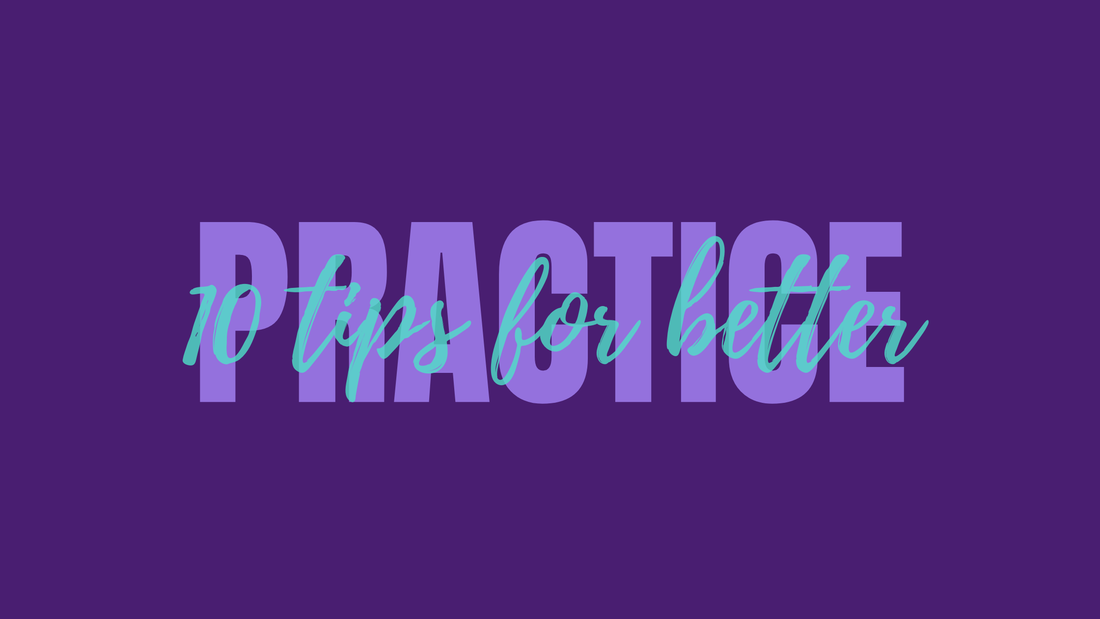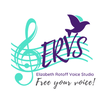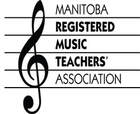|
Welcome! This is the first official blog of my new website. With no performances and no travel, this summer was the perfect time to build my new site. So I'm excited to share it. Here you will find content in all things singing, from the art of singing, tips for students and lots on the care of the vocal instrument. Now that we're settling into the fall routine with our new normal (for me that means all online lessons), I want to start off by giving my students some solid tips to make their practice time into an efficient use of their time. The goal is not to go in blindly and plow through all the songs singing them over and over without a thought. Instead, we want to approach each session mindfully. This will allow for faster progress and singing more of the songs they love. 1. Schedule a regular practice time each day.Making sure there is a set time each day to practice is a great way to ensure good practice habits. Young children may need parents nearby to help them look at notes and set goals for the practice session. 2. Do your warm upsWe all want to get right to the good stuff and sing our favourite pieces, but it's important to remember to warm-up. Just like an athlete stretching before hitting the field, we need to warm up our vocal muscles, too. 3. Read you lesson notesWhen you're practising between lessons it can be easy to just start working on your pieces and never crack open your note book with the lesson notes. However it's important to check here to make sure you're completing the correct assignments and working on the things your teacher feels are priorities for your improvement. If you do this you will get better faster and be able to enjoy your music making all the more! 4. Set goals for each practice sessionAs tempting as it is to go over and over your pieces, it's important to have efficient practice for the best results. Setting a goal before each session is a great idea. Examples: -Keep a steady beat -Sing through phrases in one breath -Memorizing ...and so on. Keeping the focus on just a one or two things will make it easier to learn and keep the fun in practice. 5. Listen to yourselfSometimes you might charge into a piece and just try to plow through it without really taking the time to listen to yourself It's important to develop the skill of listening Are you playing musically? Do the notes sound right? Are you using dynamics? And so on... You can even record yourself and listen back to see if you did. 6. Practice slowlyBreaking down your piece and singing it slowly will ensure that you learn the notes correctly, improve enunciation and develop a fluid line. Keep a steady beat, don't rush through the parts you already know. You will learn a lot faster with fewer mistakes and have much better control if you take the time to practice slowly. 7. Practise in small sectionsWe all want to sing the whole piece in all it's glory, but the fastest way to mastering it is to work it in small sections. Work a phrase at a time or even a couple of measures to get the notes, rhythm and tempo. You'll be able to get the whole piece polished in no time following this method with less frustration. 8. Take a deep breath and move onAt times when we are trying to perfect a section of music it requires us to do multiple repetitions of a small section. Some days it just doesn't seem to be working. It can get frustrating. If you feel the frustration building it's not going to help your technique, so it's best to take a deep breath to calm down and let go of the tension and then move on or stop for that practice session. 9. Don't practice mistakesPractice makes perfect they say. That goes for mistakes too. If you keep singing the same mistakes over and over again, you are learning them just as surely as you're learning the rest of the piece. If you catch a spot where you constantly make a mistake take note. Then go back to it and use practice tips #5, 6 and 7: -Listen to yourself -Practice slowly -Practice in small sections This is efficient practice and will make this music teacher very happy when you come back to your lesson with your mistakes corrected! 10. Practice in front of a mirrorSingers, there is so much to be learned by looking at yourself in the mirror when you practice. You can check for:
Do you look like a performer you would like to watch? It can be hard looking at yourself at first, but if you learn how to do this, you will progress much faster by having that self-awareness. So how many of these practice tips do you already have in place? Which ones do you need to start focusing more on?
If you're new to practice, just pick a few tips to start with. I'd start with 1, 3 and 4, then build from there. You will unlock your potential and #freeyourvoice in no time!
1 Comment
I like that you talked about slowly singing every part of a song can help you learn the notes well. I will keep that in mind when I try joining voice lessons this December. It's something that I want to try and tick off my bucket list even if I have no plans of becoming a singer.
Reply
Leave a Reply. |
AuthorHi, I'm Elizabeth! I'm your guide on your vocal journey. I work with singers - Voice Students of all ages, Singing Teachers and Choristers - basically anyone who LOVES to Sing and wants to free their voice. Archives
August 2022
Categories
All
|
Elizabeth Rotoff Voice and Wellness
Home to
Member of:
Elizabeth Rotoff Voice and Wellness © COPYRIGHT 2020. ALL RIGHTS RESERVED.


 RSS Feed
RSS Feed





